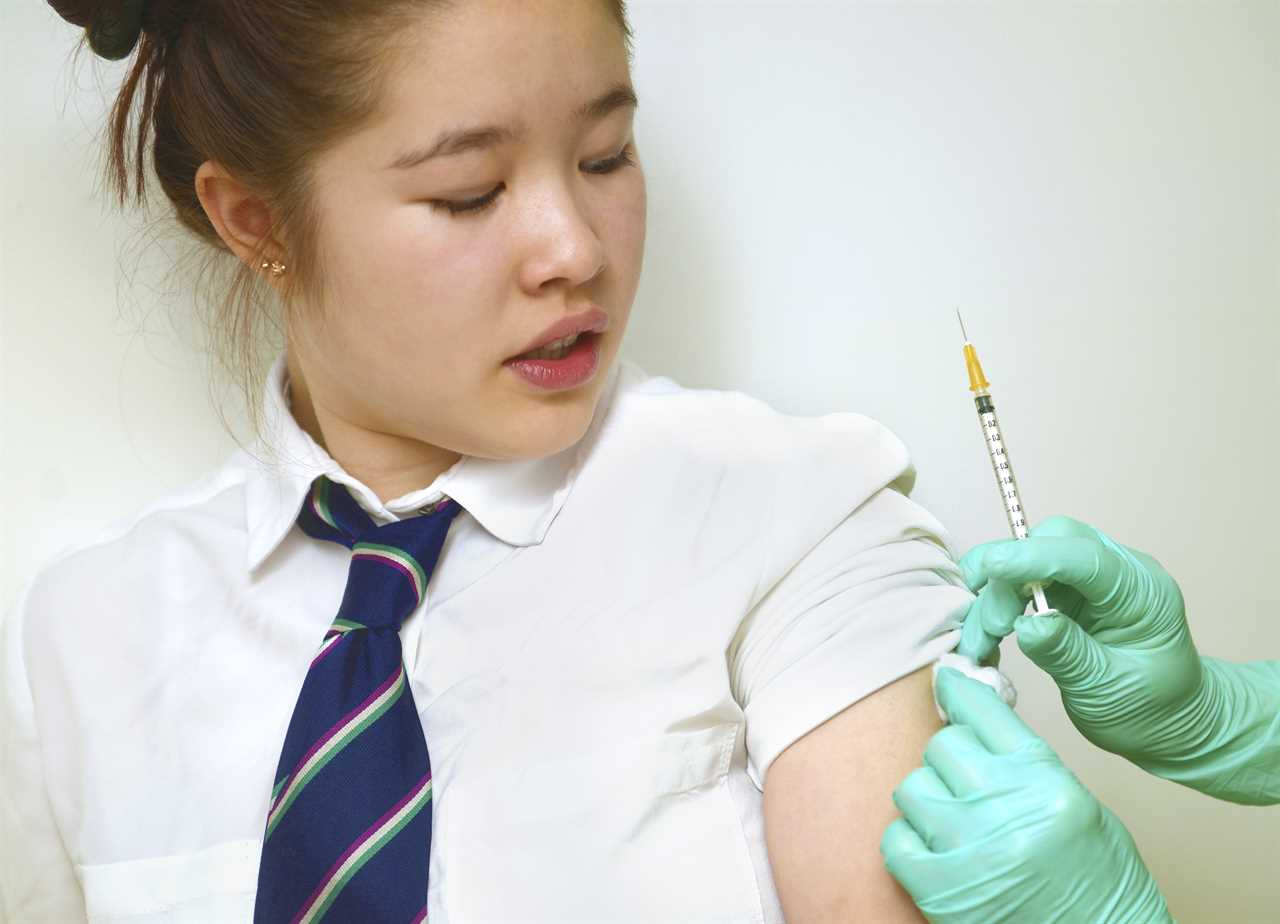
Parents across the UK are being urged to ensure that their teenagers have received a crucial cancer jab, as the coverage of this life-saving vaccine has dropped significantly during the pandemic. The vaccine in question is the HPV vaccine, which is offered in two doses to all 12 and 13-year-olds in school years 8 and 9. This vaccine plays a vital role in preventing a range of cancers, including cervical cancer, head and neck cancers (mouth and throat), and cancers of the anus and genital areas.
Drop in HPV vaccine coverage raises concerns
Recent data from the UK government has revealed that the coverage of the HPV vaccine has fallen by seven percent from 2021 to 2022 compared to the previous academic year. This decline has raised concerns among healthcare professionals and the Oral Health Foundation, as many teenagers who did not receive the vaccine may now be at a higher risk of developing these types of cancers.
Dr Nigel Carter, the chief executive of the charity, emphasized the importance of checking whether your child is up to date with their HPV vaccine and contacting their school if there are any doubts or concerns. He stated, "It's a life-saving vaccination, and they must be protected."
HPV: A leading cause of cancer
HPV, or the human papillomavirus, is responsible for five percent of all cancers and is a leading cause of mouth cancer and cervical cancer. This sexually-transmitted virus often goes unnoticed as it does not typically cause symptoms or problems. There are approximately 200 different strains of HPV, most of which are harmless and resolve on their own. However, two specific strains, HPV16 and HPV18, can trigger various types of cancer, including genital, cervical, head, neck, throat, and mouth cancer.
Dr Nigel emphasized that the most effective form of protection against HPV is the vaccination, and it should ideally be administered before a person becomes sexually active.
Is your child eligible for the life-saving jab?
The HPV vaccine has been offered to girls since 2008, and boys were included in the program in 2019 with the aim of significantly reducing HPV-related cancer cases in the future. The Oral Health Foundation and Portman-Dentex conducted a study that indicates an improvement in awareness and confidence regarding the HPV vaccine in the UK.
The study, involving 2,000 participants, reveals that approximately 19 percent of adults now know that HPV is a cause of mouth cancer, and 24 percent understand that the virus is transmitted through sexual activity. Awareness of HPV and its link to mouth cancer has nearly doubled in recent years. Moreover, confidence in the HPV vaccine has increased by about 20 percent in the past year alone.
Dentist Catherine Tannahill from Portman-Dentex stressed the importance of the HPV vaccine, stating that it has potentially saved millions of lives and has robust evidence supporting its effectiveness in preventing HPV-related cancers and diseases. She urged all parents to ensure that their child is vaccinated.
A mother's perspective
Rachel Parsons, a mother from Coventry, was diagnosed with suspected HPV mouth cancer after discovering a lump in her mouth. Following her own experience, Rachel made sure that all of her children received the HPV vaccination. She emphasized that HPV can stay dormant for years and that contracting it is not necessarily linked to promiscuity. Rachel encouraged everyone eligible to receive the HPV vaccine, stating, "No one should go through what I did."
With the coverage of the HPV vaccine dropping during the pandemic, it is crucial for parents to take action and ensure that their teenagers receive this life-saving jab. By doing so, they can protect their children from a range of cancers and contribute to reducing HPV-related cancer cases in the future.






